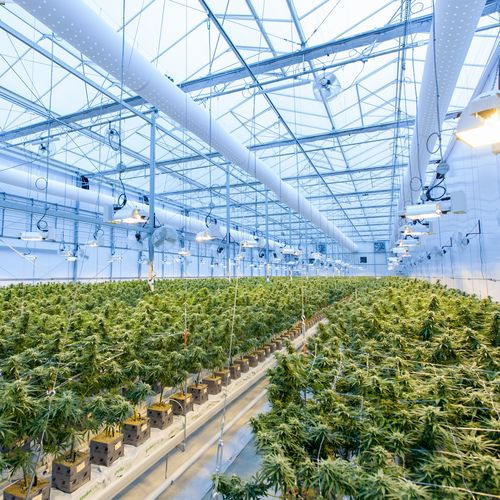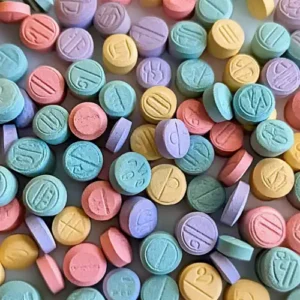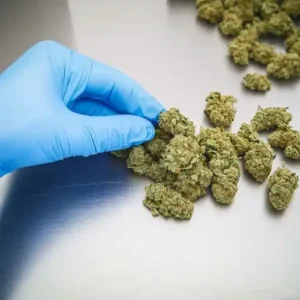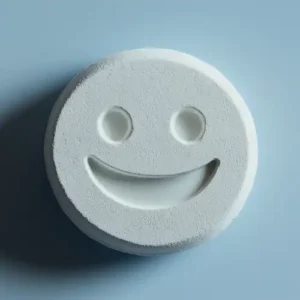In the past few years, the cannabis industry has seen a sharp rise in the production of high-potency weed. Indeed, in 2015, we first blogged about the subject in our post, How Strong Is Cannabis Nowadays which highlighted the fact that cannabis is now twice as strong as it was a decade ago.
The increase in cannabis strength has led to a range of life-threatening health risks that are now associated with weed use. Some of these are higher risk for addiction, psychosis, and lung cancer.
What’s In Cannabis?
The cannabis plant is a complex organism, with over 400 chemicals. The resin of the cannabis plant is made up of these chemicals, including THC and CBD. Traditionally, cannabis resin contained much lower amounts of THC with equal quantities of CBD (cannabidiol, which is believed to have medicinal properties).
What are THC and CBD?
The cannabis plant produces two main compounds: THC and CBD. THC is the psychoactive compound that causes the “high” feeling, while CBD is the non-psychoactive compound.
THC is a psychoactive substance that can cause intoxication and euphoria. It is found in the cannabis plant and produces feelings of relaxation, reduced anxiety, and increased appetite.
THC is short for tetrahydrocannabinol, a psychoactive substance that can cause intoxication and euphoria. It is found in the cannabis plant and produces feelings of relaxation, reduced anxiety, and increased appetite. THC binds to cannabinoid receptors in our body which are responsible for regulating things like moods, memory, movement coordination, appetite, sleep patterns etc.
The effects of THC depend on the person’s age and weight as well as how often they have used it before.
CBD doesn’t have any psychoactive properties, but it does have strong anti-inflammatory properties, which makes it useful for people with chronic pain or who are sensitive to other drugs like opioids. You will not fail a cannabis drugs test if you have high levels of CBD in your system but some cannabis oils have been found to have high levels of THC which could cause a drugs test to return a positive result.
How is Cannabis Getting Stronger?
The levels of THC in cannabis plants have increased steadily over the past few decades. The reason is because people want to get high and they want to be able to do it as quickly as possible.
People used to smoke joints with a THC content of about 5%. Nowadays, the average THC content is over 15% and some strains are as high as 20-25%.
Resin is often seen as a safer type of cannabis, but findings show that it is now stronger than herbal cannabis. Resin is the sticky, tar-like substance that comes from the cannabis plant and contains high levels of THC.
The findings were published in the Journal of Forensic Sciences and found that resin has an average THC content of 18.7% compared to herbal cannabis which has an average THC content of 12%. The study also found that resin had a higher concentration of CBD than herbal cannabis.
The findings were published in the journal Drug and Alcohol Dependence. The study found that resin users are more likely to have mental health problems and use harder drugs like heroin or cocaine.
How Strong Can Weed Get in the Future?
The future of weed is still unclear, but we can make some predictions based on the current trends.
Some people believe that weed will become more potent in the future. Cannabis companies are focusing on breeding for higher potency strains with higher levels of THC. For many , the motto seems to be, ”the higher the potency, the better the effects”
Certainly, the cannabis industry is evolving at a rapid pace. One of the most important changes is that cannabis companies do now seem to be focusing on growing higher potency strains with higher levels of THC.
In order to produce these types of cannabis strains, companies are working with growers and scientists to develop new techniques and technologies to grow stronger plants. For example, they are using LED lights that emit specific wavelengths of light to stimulate plant growth or they are using hydroponic systems which allow for more control over nutrient levels in soil and water flow rates in order to grow plants faster.
The Dangers of High Strength Cannabis
High CBD cannabis has been proven to be beneficial to health for many. Cannabis with high CBD is not psychoactive, which means that it does not produce the “high” feeling. The high CBD cannabis can reduce seizures and convulsions, relieve pain and inflammation, and decrease anxiety.
High THC cannabis is a different story. Cannabis with high THC can be detrimental to health. High THC cannabis can cause anxiety, paranoia, hallucinations, increased heart rate and blood pressure, as well as other negative effects on the body.
As a rule, high potency cannabis is not only more addictive, but also more dangerous. The higher the THC content, the higher the risk of addiction and overdose.
A study in England found that people who smoked cannabis with a high THC content were five times more likely to develop a cannabis addiction than those who smoked cannabis with a low THC content.
Another study in Canada found that people who smoked cannabis with a high THC content were twice as likely to experience psychotic symptoms and hallucinations than those who smoked cannabis with a low THC content.
The Potential Benefits of Low THC, High CBD Cannabis
While high THC cannabis can pose risks, some studies suggest that cannabis strains with low THC and high CBD may offer potential therapeutic benefits. CBD has been shown to have anti-inflammatory, anti-anxiety, and anti-seizure properties. It may help relieve chronic pain, reduce anxiety and depression symptoms, and improve sleep. However, more research is needed to fully understand the long-term effects and potential medical applications of CBD. It’s important to note that even high CBD products may contain trace amounts of THC, so it’s crucial to purchase from reputable sources and check labels carefully.
Moderation and Harm Reduction
For those who choose to use cannabis, moderation and harm reduction strategies can help mitigate potential risks. This includes:
- Opting for lower THC strains or products
- Avoiding synthetic cannabinoids like “Spice” or “K2”
- Not driving or operating machinery while under the influence
- Being mindful of dosage and starting with small amounts
- Not mixing cannabis with alcohol or other drugs
- Being aware of personal or family history of mental health issues
It’s also crucial for individuals to be aware of the legal status and potential consequences of cannabis use in their area. Open and honest communication with healthcare providers can help ensure informed decisions about personal cannabis use and overall health.
Photo by Richard T on Unsplash
Zoom Testing is a leading UK drug testing company and a supplier of Drug Test Kits.
This post was originally published in July 2022.





